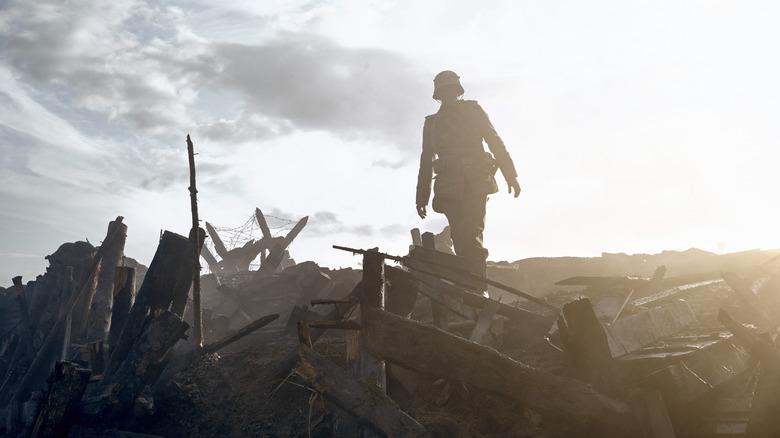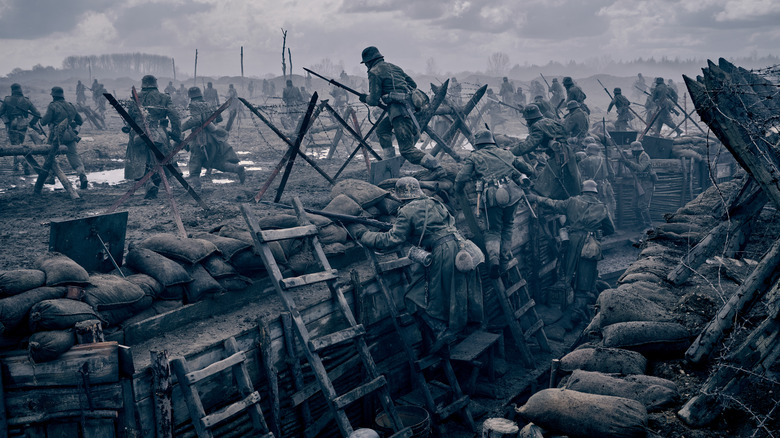All Quiet On The Western Front's Composer Made Music To Twist Your Guts [Exclusive]
Netflix is currently gearing up for the release of its epic-sized war film, "All Quiet on the Western Front," which will be the next major adaptation of the classic and tragic novel published by German author Erich Maria Remarque in 1929. The famously anti-war story — written by a veteran of World War I — is not for the faint of heart, depicting the horrors and unspeakable human cost of the Great War in lurid detail.
As such, any attempt to bring that story to life on the big screen would have to capture the similar ethos at the core of the original novel. The 1930 Best Picture-winning film managed to do just that, making itself an enduring classic that has stood the test of time all these decades later. Now, it's Netflix's turn to attempt something similar with its modern adaptation by German filmmaker Edward Berger.
While viewers will have to wait a little longer for the streaming release of "All Quiet on the Western Front," /Film was able to talk to the director for an upcoming interview to be published. During the course of the conversation, Berger talked about how he collaborated with the film's composer, Volker Bertelmann, who captured the horrific tone of the story through the music.
'Something that we'd never heard before, especially in a war movie'
Anyone making a war film at this point in time has an entire genre of predecessors to look to that can either pose a daunting challenge ... or an opportunity for fresh inspiration. Director Edward Berger chose the latter when it came time to make this new adaptation of "All Quiet on the Western Front."
With that in mind, /Film's Danielle Ryan had the chance to speak with the German filmmaker in a wide-ranging interview that will soon be published on the site. When the discussion turned to evoking the haunting and deeply disturbing themes of the original novel, Berger had this to say about bringing this out through his work with composer Volker Bertelmann ("Lion," "Hotel Mumbai," "The Old Guard," "Ammonite"):
"I basically told the composer three things. The first thing was, I would love something that we'd never heard before, especially in a war movie, that feels really different and pushes the movie to making me immediately feel as an audience member, 'Oh. This is different. Interesting.' I lean in when I hear something like that. Secondly, to destroy the images. To not beautify it, to not sentimentalize, to just basically create a sense of destruction in the image. And third, to find a sequence of tones or melody that gets into Paul's gut. That gets into his stomach and puts a fist inside and twists it around once. And hopefully it does the same with you."
That certainly appears to have worked as intended, as /Film's Sarah Milner described in her review out of the Toronto International Film Festival earlier this year. Viewers will be able to make that judgment call themselves when "All Quiet on the Western Front" debuts on Netflix October 28, 2022.

